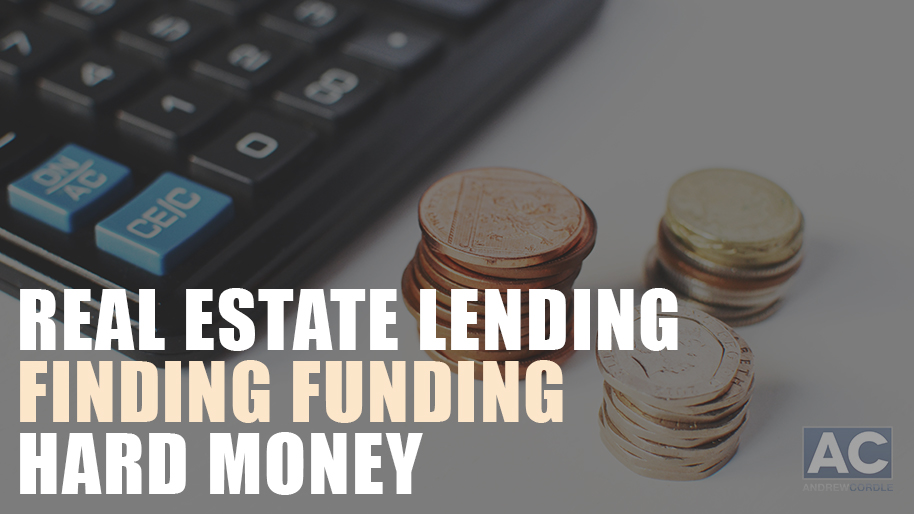
Do you know how to make money in real estate? Are you into flipping houses? What are you? Would you consider yourself an entrepreneur or do you consider yourself an investor? Defined: An Entrepreneur is “When money, sweat, hard work, time, effort, energy and opportunity make you money”. An Investor is “when your money makes you more money”. I cannot stress enough the importance of making sure that you have a solid foundation in this industry. Your foundation is what you’re doing in real estate and what you hope to accomplish. Thousands of investors get into the real estate investing business and they enjoy it. For a while. Then they’re out as fast as they jumped in. Why? Their foundation wasn’t solid! We all want to avoid becoming a casualty of the real estate investing war. Let’s discuss what you can do in order to avoid washing out. When I was first starting out investing in Atlanta real estate, I focused almost solely on the flip, or the buy/fix/sell side of things. I was flipping between 15-25 houses every month. Some of those flips were new construction and some of them were major rehabs. At that time in my life, if someone would have asked me, “Andrew, are you a real estate investor”, I would have replied, “yes, of course I am”! I’ve maintained a staff of 22 people and I was building and flipping homes. Also I was investing my money and I was buying foreclosures. Fixing them up and then selling them. But when the market collapsed and the bubble burst – I lost all of it. My biggest lesson at the time? I realized that I wasn’t an investor! I thought I was an investor that entire time when in all reality, I was actually an entrepreneur. If you claim to be an investor but you’re not one, how are you ever going to become one? The problem is that you think you already are an investor! You need to know what you are first. To be honest, I consider myself a little bit of both. That’s what I recommend to my students. It’s likely that you’ll start out as an entrepreneur and work your way up eventually to be an investor. Most of you are outright entrepreneurs. That’s okay! It’s powerful and can make you a lot of money. Just don’t get caught-up thinking you’re one thing, when in a reality you are the exact opposite! So what do you consider yourself to be? Identify yourself. A quick and easy way to answer this question is this. Say you were to go on a 3-month vacation cruise, not working the entire trip, would you still generate the same income as you would while you’re home? If the answer is no, you’re an entrepreneur. If the answer is yes, then you, my...
Read More »

Finding Funding Series – The Hard Money Lender During the series introduction, I listed five funding sources for every investor. In the introduction, I merely skimmed over the five funding options. However, we’ll be discussing each funding option in more detail, beginning today with “HML” or Hard Money Lending. A hard money lender is a very easy route for investors. Why? Because HML’s are in the business to loan YOU money! It’s how they make money. As I mentioned previously, any investor worth his salt uses or at a minimum, has access to all five lending sources that I listed in the series introduction. In my opinion, HML’s are the easiest way to access funding. This is especially important for inexperienced investors. These beginner investors have a tendency to become obsessed with finding the cheapest “private” money, meanwhile, there’s an HML right up the road who is in-business to loan you money! Sure, maybe his terms are not exactly what you want but remember, don’t step over a dollar to save a dime! Hard money doesn’t necessarily have to be your only source for funding but it should take priority as the easiest way to get funding for your first flip. I just so happen to be in the middle of several large flips. I am currently closing on a home with a $500,000 purchase price. Yes, my other flips use other sources of funding, but for this one, I needed a hard money lender because of the price. I am in no-way a beginner investor as I’ve spent over a decade in the industry – but I still use hard money lenders for certain situations. Especially situations in which the purchase price is a little higher and I need guaranteed approval. How does a hard money loan work? 1. An HML loans you funds to both purchase and rehab your investment. In most HML cases, one has to come to closing with roughly 10-20% down depending on the lender. 2. HML’s will give you the option of a six or twelve month plan. I recommend a twelve month plan. Six months can work if everything goes perfectly. But if things don’t go as planned and the home doesn’t sell, the HML can foreclose or charge additional points or interest. 3. HML’s make their money by charging you points/interest. One point equals 1% of the total loan. Interest will generally be anywhere between 12-18%. 4. HML’s typically do not charge a pre-payment penalty so one can pay off the loan amount at any time without being charged additional monies. 5. One will usually receive the rehabbing construction funds in several draws. These draws can be set-up in many different ways. For example, let’s say we have a $30,000 rehab project. In this case, one would typically set-up three separate...
Read More »
When we’re teaching investors how to flip a house, the importance of the kitchen rehab cannot be stressed enough. Kitchens sell homes! In this video, Andrew shows you how to flip a house. Rehab that kitchen so the end result is a top-notch, eye-catching product! Our video library helps any investor learn how to flip a house. ...
Read More »

When one is learning how to make money in real estate by flipping houses, property analysis defined is “a study made to familiarize one with the nature and condition of a building, its relative market position, and its estimated income and operating expenses”. Flip analysis and property inspection can be a make or break scenario for many real estate investors. It’s at this point when one determines whether or not your property has value or it’s a dud. There are two extremes that most investors can be categorized into: 1. The investor that over-analyzes the deal. This is often referred to as “analysis paralysis.” Beginner investors are often so anxious about the deal that they spend far too much time analyzing the rent rate, the cap rate, days-on-market, and every other little tiny detail regarding the property and the neighborhood. These investors overanalyze the deal to such an extent that while they’re wasting time overanalyzing the deal, another more seasoned investor, who can make their decision in ten minutes, swoops in and stalls the deal. Before you know it, the deal is gone while you’re still pouring over color combos on seventeen different pie charts! 2. The investor that doesn’t analyze anything and has no clue as to what is currently going-on in their market. They have no idea whats driving the market in their area, and just heard a rumor from their wholesaler that they’ve found a good deal…so they buy it without doing any research! In reality, these investors have absolutely no idea what they just bought and are never able to establish the true ARV for this investment. The successful investor, however, does their best to stay somewhere in the middle. They know their market and what drives it. Consequently, they are able to quickly determine whether or not it’s a quality deal. This is something that every investor must learn how to conquer or risk being left in the dust of more experienced, successful flippers. For example, just in the past week, I received an email from one of my wholesalers listing a buy/fix/sell in my current investment area. Within twenty minutes, we were on-site analyzing the deal. Ten minutes later, we were under contract! So within thirty minutes of receiving an email, we had the property. This is further proof of how quickly the market moves and is one of the ways that I’m able to stay heads-above my competitors. There have also been times which I received notification of an available property that was so good that I bought it right there on the spot – “site unseen!” I never left my desk. This is not me recommending this course of action for everyone, every time. The point is to give readers an example as to how fast the current market is moving. One must learn to...
Read More »











